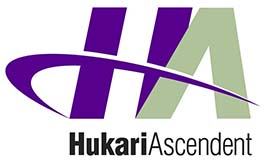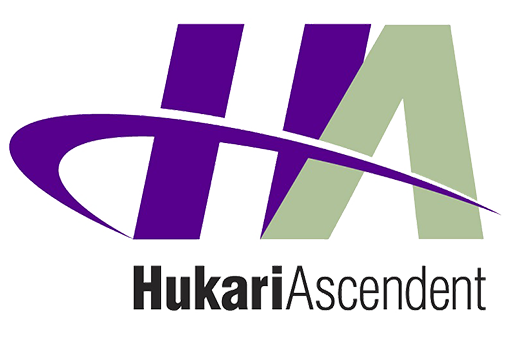Nuclear Safety Engineer Jobs at Nuclear Facilities
HukariAscendent is continually searching for qualified Professionals to fill current and future contract obligations.
NUCLEAR SAFETY ANALYSIS
New opportunities arise frequently as existing contracts are implemented, new contracts are awarded, and new business opportunities are sought. To be considered for employment with HukariAscendent, you may apply to the Jobs listed, or you may submit your resume to: resumes@hukari.com. You may also fill out the on-line application by clicking the Application link associated with specific job applications. Click here for all jobs available.
HukariAscendent has nuclear safety jobs, criticality safety jobs, and radiological safety jobs to support to the Department of Energy (DOE) nuclear sites and laboratories and the commercial nuclear industry. We perform safety analysis, risk management, hazard analysis, integrated safety management, and general safety principals to effectively evaluate the safety of high consequence operations, including both nuclear and non-nuclear operations.
HukariAscendent expertise and analytical methods include:
Department of Energy
HukariAscendent has provided Nuclear, Criticality, and Radiological Safety support at the following DOE sites: ANL, Oak Ridge, Hanford, Idaho, LBNL, LLNL, LANL, NNSS, Pantex, Portsmouth, Paducah, PPPL, Sandia, and SRS.
Nuclear, Criticality, and Radiological Safety support includes the development, implementation, and maintenance of Nuclear, Criticality, & Radiological Safety Program procedures and evaluations to meet applicable DOE Standards. Nuclear, Criticality, and Radiological Safety Engineers also perform oversight of safety basis activities which include program assessments, readiness assessments (RA), implementation validation reviews (IVR) and compliance assessments.
Safety basis documents include:
- Criticality and nuclear safety
- Dispersion and plume Modeling
- Explosives safety analysis
- Failure mode & effects analysis (FMEA)
- Fault tree analysis (FTA)
- Fire hazard analysis (FHA)
- Monte Carlo
- Natural phenomena and external events analysis
- NRC interface
- Nuclear Licensing, compliance
- Probabilistic risk assessment (PRA)
- Radiological dose calculations
- Safety evaluations of system and component designs
- Safety implications of construction activities.
- Shielding calculations
Commercial Nuclear Industry
HukariAscendent has provided safety analysis support during all phases of a nuclear plant’s lifecycle. Representative documents developed to 10 CFR Part 21, Part 30, Part 50, Part 51, Part 52, Part 70, Part 72, include:
- 50.59 Reviews
- Construction and Operating License Application (COLA)
- Failure Modes and Effects Analysis (FEMA)
- Final Safety Analysis Report (FSAR)
- Inspections, Tests, Analyses and Acceptance Criteria (ITAAC)
- Power Uprate Application
- Preliminary Safety Analysis Report (PSAR)
- Probabilistic Risk Assessment (PRA)
- Technical Safety Requirements (TSR)
- Technical Specification
- Updated Final Safety Analysis Report (UFSAR)
- Advanced Reactor Facilities and Small Modular Reactors
- Commercial Nuclear Power Production Facilities
- Fuel Fabrication Facilities
- Independent Spent Fuel Storage Installations (ISFSI)
- Medical Radioisotope Production Facilities
- Uranium Enrichment Facility
- Provide technical assistance in developing criticality safety documents and analyses, criticality safety controls, and related technical support documentation.
- Ensure that the development of criticality safety documentation complies with requirements and as necessary, applicable controls are implemented in field procedures.
- Perform modeling using MCNP or SCALE.
- Provide general guidance on the implementation of criticality safety limits, the physics of criticality and criticality accidents, training and assistance to operational personnel.
- Conduct Criticality Safety Program assessments and maintain program manuals.
- Mentor and oversee the work of junior level analysts.
- Prepare and revise NS analysis, calculations, technical safety requirements, and safety basis documentation.
- Provide expert analysis and assistance for NS matters.
- Prepare engineering studies and report preparation.
- Perform engineering computer modeling as assigned (e.g. MACCS, PostMax, GENII, ARCON, ALOHA, Hot Spot).
- Prepare Safety Basis Changes, NS Evaluations, Unreviewed Safety Question (USQ) Determinations and USQ Screenings.
- Document site characterization, hazard identification, accident description, event progression, and controls selection. This includes, but is not limited to, internal operational events and external events (both including fires, explosions, and loss of confinement) and natural phenomena events (including seismic and high wind/tornado).
- Evaluate existing site operations, modifications, and new operations for compliance with the Safety Basis and Nuclear Safety codes and standards, federal, state, or local statutes.
- Review, check, and comment on safety analysis documents and calculations prepared by peer engineers and subcontractors.
- Perform inspections, identify and assess hazards; develop recommendations on Nuclear Safety issues.
- Develop Nuclear Safety procedures and guides.
- Conduct Nuclear Safety Program assessments, facility Readiness Assessments (RAs), and Implementation Verification Reviews (IVRs).
- Ensure that the developed nuclear safety documentation complies with requirements and as necessary, applicable controls are implemented in field procedures.
- Work with Engineering and Operations to provide technical guidance to project personnel.
- Mentor and oversee the work of junior level analysts.
- Development, review and delivery of Radiological Worker training and Radiological Control Technician training.
- Determining appropriate preventative measures to limit exposure of site personnel, including data collection, analysis, and ensuring that site operations are conducted in accordance with contractual, statutory, and regulatory requirements.
- Participating in planning and optimizing ALARA design and control to support Environmental Remediation and Waste Management related to measurements, controls, ALARA evaluations, and data interpretations.
- Communicating status of measurements exceeding safe levels and recommending engineered controls.
- Contributing to the modification of policies and procedures to enhance radiological safety.
- Providing interpretative guidance regarding radiation levels and appropriate controls.
- Supporting Radiation Protection functional areas such as sampling, data capture, entry and analysis support, documentation, procedure update, report preparation, or related areas.
- Preparing survey and release plans for facilities and equipment (includes use of MARSSIM).
- Developing Final Status Surveys based on historical site assessment, characterization survey report, radiological instrumentation technical data, and current radiological survey data.
- Evaluating materials and equipment for unrestricted release.
- Development and maintenance of internal and external dosimetry program.
- Performing personnel dose assessments.
- Providing technical guidance in interpreting standards.
- Providing technical guidance in selecting anti-C clothing.
- Assisting in the development of corrective actions in response to radiological problems.
- Performing audits and assessments of functional areas of the radiological program.
HukariAscendent is an Equal Opportunity/Affirmative Action Employer. All qualified applicants receive consideration for employment without regard to age, disability, race, color, religion, creed, national origin, sex, marital status, sexual orientation, veteran or military status including disabled veterans and Vietnam era veterans, or other protected status.
HukariAscendent maintains a drug- free workplace.
For questions or if you need accommodation in the application process, please contact HukariAscendent Recruiting at (303) 384-9079.


